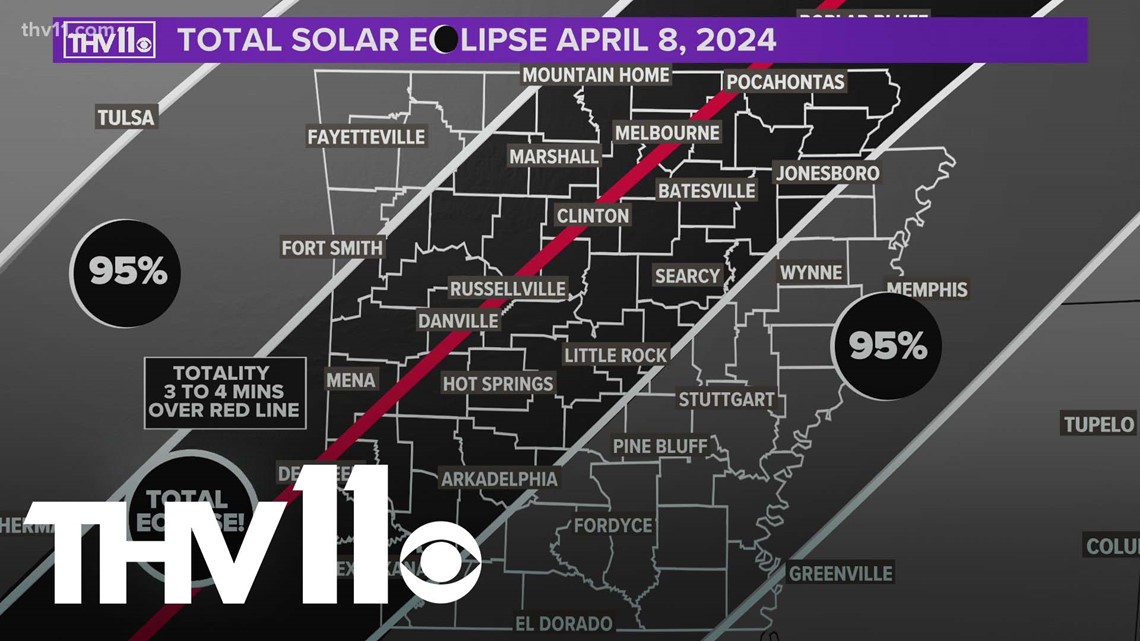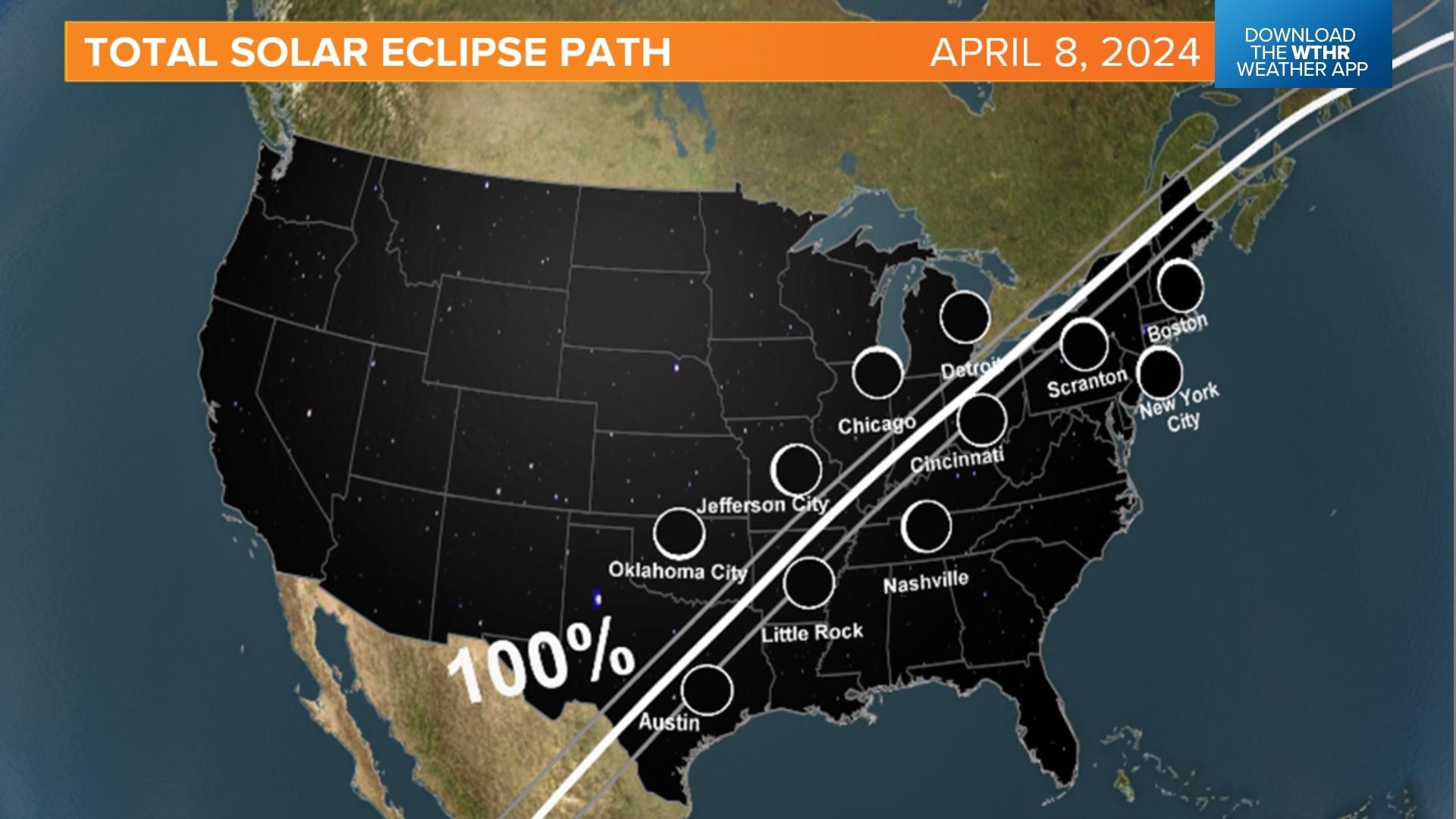WASHINGTON — Mark your calendars! A solar eclipse stretching across a large portion of the country will grace the sky in two years on April 8, 2024.
A solar eclipse occurs at the exact moment when the moon passes between the sun and Earth blocking the sun's light. The short time when the moon completely blocks the sun is known as the period of totality.
Instead of stretching coast-to-coast like the 2017 "Great American Eclipse", the path of totality for 2024's event largely covers the eastern half of the United States.
Portions of Texas, Oklahoma, Maine, Missouri, Kentucky, Illinois, Indiana, Ohio, Pennsylvania, New York, Vermont, New Hampshire and Maine will see 100% totality. Areas further away from the path of totality will see decreased blockage of the sun.
According to Forbes, 32 million people live within the path of totality for the 2024 eclipse, compared to just 12 million who lived within the 2017 path.
The start of totality will begin in Texas just before 1:30 p.m. CT and end in Maine just after 3:30 p.m. ET.


Some of the major cities in the path of totality include Austin, Dallas, Indianapolis, Cleveland, Buffalo and Syracuse.
Before reaching the U.S., the April 2024 eclipse will go through parts of Mexico and continue through the eastern portion of Canada.
Opposite of a solar eclipse is a lunar eclipse, which is when the Earth moves between the sun and the moon.
A total solar eclipse in the United States isn't an everyday occurrence. The last major solar eclipse in the United States occurred on Aug. 21, 2017. That was the first solar eclipse visible from the 48 contiguous states since 1979. It was also the first eclipse to stretch coast-to-coast since 1918.

